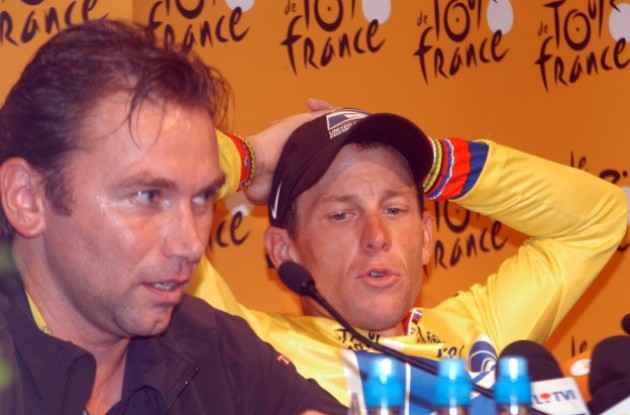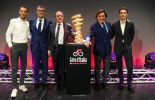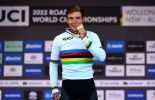Lance Armstrong confesses to doping
Describing himself as a “bully” and a “deeply flawed character”, Armstrong ended years of denials by revealing some of his darkest secrets in an interview with talk show host Oprah Winfrey at his hometown of Austin, Texas.
In the opening question of the televised interview recorded three days earlier, one word was all it took to dismiss any remaining doubt his success on the bike was fueled by doping.
“Yes,” he replied when asked directly whether he used performance enhancing drugs.
True to her word, Winfrey rapidly fired probing questions at Armstrong, offering little respite and grilling him about selected aspects of his tainted career. Winfrey, however, did not satisfy many viewers' request for deeper questions related to accusations related to bribing and fraud. These topics needed a professional journalist to probe deeper into what is a complicated story.
Without any hesitation, and showing no signs of emotion, Armstrong replied “yes” to a series of questions about whether he used specific drugs, including erythropoietin, human growth hormone and blood doping.
Asked why he had repeatedly lied about using banned substances until Thursday’s startling admission, he told Winfrey: “I don’t know I have a great answer.
“This is too late, probably for most people, and that’s my fault. I view this situation as one big lie that I repeated a lot of times.
“It’s not as if I said no and moved off it. While I’ve lived through this process, I know the truth. The truth isn’t what I said and now its gone.”
A cancer survivor who inspired millions with what had seemed like a fairytale career, Armstrong said he did not believe he could have achieved what he did without breaking the rules due to the culture of drugs in cycling.
“Not in that generation. I didn’t invent the culture, but I didn’t try to stop the culture,” he said.
“It’s hard to talk about the culture. I don’t want to accuse anyone else. I’m here to acknowledge my mistakes.”
He said he never considered himself to be a cheat and was sure he would get away with it, until out of competition tests were introduced and testing procedures dramatically improved.
Armstrong claimed the last time he cheated was in 2005, when he won his seventh Tour de France on the streets on Paris. He made a comeback in 2009 but said he never used drugs again.
The United States Anti-Doping Agency (USADA), however, claims it has collected blood from Armstrong in 2009 and 2010 that is “fully consistent with blood manipulation including EPO use and/or blood transfusions.” Michael Ashenden, an Australian exercise physiologist specializing in blood doping, also disagrees with Armstrong's claim.
“I looked up the definition of a cheat to gain an advantage. I didn’t view it that way. I viewed it as a level playing field,” he claimed.
Armstrong’s admission came just months after the U.S. Anti-Doping Agency released a detailed report describing him as the ringmaster of the “most sophisticated, professionalized and successful doping program that sport has ever seen.”
While he confessed to cheating and bullying, he denied several of the other accusations that have been made against him.
He rejected suggestions he failed a doping test at the 2001 Tour Of Switzerland then paid off the International Cycling Union (UCI) and doping officials to cover up the result.
“That story isn’t true. There was no positive test. No paying off of the lab. The UCI did not make that go away. I’m no fan of the UCI,” he claimed.
Armstrong said he thought he had got away with it when he retired for good in 2011 but his downfall was triggered by a two-year federal investigation that was dropped but led to the USADA probe.
USADA boss Travis Tygart said Armstrong still had some way to go if he wanted to make amends.
“Tonight, Lance Armstrong finally acknowledged that his cycling career was built on a powerful combination of doping and deceit,” Tygart said in a statement.
“His admission that he doped throughout his career is a small step in the right direction. But if he is sincere in his desire to correct his past mistakes, he will testify under oath about the full extent of his doping activities.”
Armstrong has already been banned for life, stripped of his all race wins and dumped by his sponsors but his problems are far from over.
“I thought I was out of the woods,” he said.
“I just assumed the stories would continue for a long time. We’re sitting here because there was a two-year federal criminal investigation.”
On Thursday, hours before the interview went to air, the International Olympic Committee (IOC) stripped him of the bronze medal he won at the 2000 Games.
And as a result of his confession, the 41-year-old Texan now faces the prospect of various legal challenges and orders to repay some of the million of dollars he earned from his success.
Legal experts said that while Armstrong was unlikely to face criminal exposure, his admission would make it more difficult to defend against civil lawsuits, including a federal whistleblower claim filed by former team mate Floyd Landis.
“There are lawyers across the country representing various interests who are recording that interview,” said Matt Orwig, a former federal prosecutor now with the law firm Jones Day.
“From a legal perspective, his issues are becoming more difficult, not less.”
Recently read articles
All he did was acknowledge what has already been proven thorough investigation. Thinking he would sit down and say yes, I was the ring leader or that he forced EPO on team mates is just not going to happen. His history shows he is able to stick to a story to the bitter end and without having years of accusations and investigative proof, we will not hear the whole story.
I see this as just damage control and not going to get the answers we are looking for.
His statements about being the first guy through the door for a USADA/WADA summit to clean up the sport was missing one vital piece.... Oprah should have asked him what he wanted out of it....... Ability to compete at an Elite Level is how it appears to me so, this is a self serving attempt to gain sympathy. That's all.








